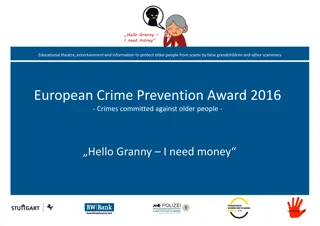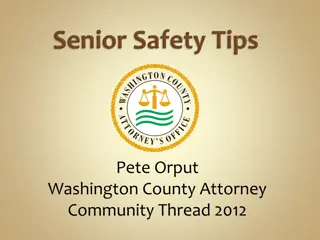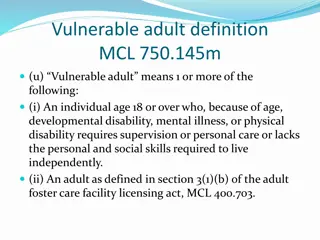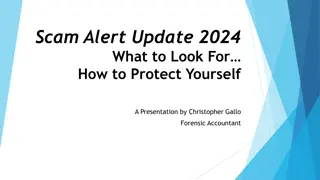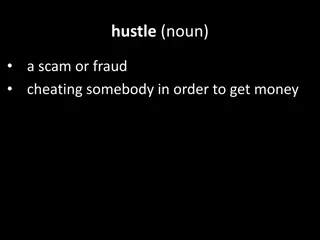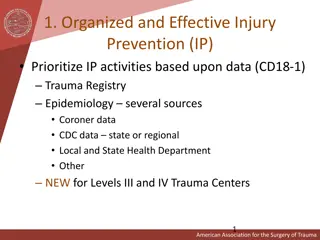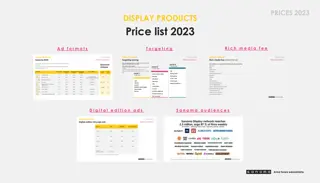Combating Scams Targeting LPCs: Awareness and Prevention Strategies
This seminar focuses on common scams targeting Licensed Professional Counselors, including phishing, Canadian, limo driver, and sheriff scams, social media scams, and fake tech support. Presented by industry experts, it provides insights on recognizing red flags, avoiding scams, and steps to take if victimized. Valuable information on safeguarding personal and client data is shared to empower LPCs in protecting themselves against fraudulent activities. Stay informed, stay vigilant!
Download Presentation

Please find below an Image/Link to download the presentation.
The content on the website is provided AS IS for your information and personal use only. It may not be sold, licensed, or shared on other websites without obtaining consent from the author.If you encounter any issues during the download, it is possible that the publisher has removed the file from their server.
You are allowed to download the files provided on this website for personal or commercial use, subject to the condition that they are used lawfully. All files are the property of their respective owners.
The content on the website is provided AS IS for your information and personal use only. It may not be sold, licensed, or shared on other websites without obtaining consent from the author.
E N D
Presentation Transcript
Texas State Board of Examiners of Marriage and Family Therapists Texas State Board of Examiners of Professional Counselors Texas State Board of Examiners of Psychologists Texas State Board of Social Worker Examiners Texas Behavioral Health Executive Council COMMON SCAMS TARGETING LPCs Professional Development for Continuing Education May 12, 2022 PRESENTERS Christopher S. Taylor, Ph.D., LPC-S, Board Vice Chair Vanessa Hall, Public Board Member
PHISHING SCAM WHAT TO WATCH FOR (RED FLAGS) LPC receives unsolicited emails in their INBOX or SPAM Folder from a purported reputable company in order to persuade you to reveal your personal information. The scammer wants you to open the email so they can steal your personal information and/or your clients records. Zelle | Adobe | New Sign-In Required | Voicemail HOW TO AVOID SCAM WHAT TO DO IF VICTIMIZED? WHO SHOULD YOU NOTIFY? Texas Behavioral Health Executive Council
CANADIAN, LIMO DRIVER, & SHERIFF SCAMS LIMO: WHAT TO WATCH FOR (RED FLAGS) CANADIAN: WHAT TO WATCH FOR (RED FLAGS) Scammer poses as a new client, pays for the LPC s service, and requests LPC to refund the money through a third-party system instead of refunding the client directly. Scammer poses as a new client, then overpays for the LPC s service, and requests LPC to refund the overage. SHERIFF: WHAT TO WATCH FOR (RED FLAGS) LPC receives notification that they missed a deadline or hearing. The scammer seeks immediate payment from the LPC. HOW TO AVOID SCAM? WHAT TO DO IF VICTIMIZED? WHO SHOULD YOU NOTIFY? Texas Behavioral Health Executive Council
SOCIAL MEDIA SCAM WHAT TO WATCH FOR (RED FLAGS) 1. Scammer tricks you into giving them your password. You may get a FB Messenger message from a friend on Facebook, saying, OMG did you see who died ; How are you today? ; Have you heard about a new _______ ? When LPC clicks on the message or clicks the link, keyloggers programs record everything you type into your computer, and has access to your login information. 2. Scammer posts comments on LPC s social page along with other responders to target new or existing clients, make unwarranted solicitations, or engage in harassment. HOW TO AVOID SCAM WHAT TO DO IF VICTIMIZED? WHO SHOULD YOU NOTIFY? Texas Behavioral Health Executive Council
FAKE TECH SUPPORT & ANTIVIRUS SCAM WHAT TO WATCH FOR (RED FLAGS) 1. Tech Support scammers are pretending to be from Microsoft, McAfee, and Norton to target users with fake antivirus billing renewals in a large-scale email campaign. They pretend your computer is infected and prompt you to dial a displayed phone number. 2. LPC receives an unsolicited email in their INBOX or SPAM Folder to purchase an antivirus software. When the LPC opens the email, the scammer can steal your identity, steal your clients records, damage your computer through spyware, adware, and malware; LPC should stop using the computer if this happens. HOW TO AVOID SCAM WHAT TO DO IF VICTIMIZED? WHO SHOULD YOU NOTIFY? Texas Behavioral Health Executive Council
CREDIT CARD SCAM WHAT TO WATCH FOR (RED FLAGS) Scammers can steal your credit card information along with your personal information in order to sell your card information, steal your identify, or take your money. Some of their scams come in the form of phishing calls, emails, or texts; offer for credit card reduction and debt settlement; online shopping; credit card skimming; unsecured wi-fi, and other sneaky methods. HOW TO AVOID SCAM WHAT TO DO IF VICTIMIZED? WHO SHOULD YOU NOTIFY? Texas Behavioral Health Executive Council
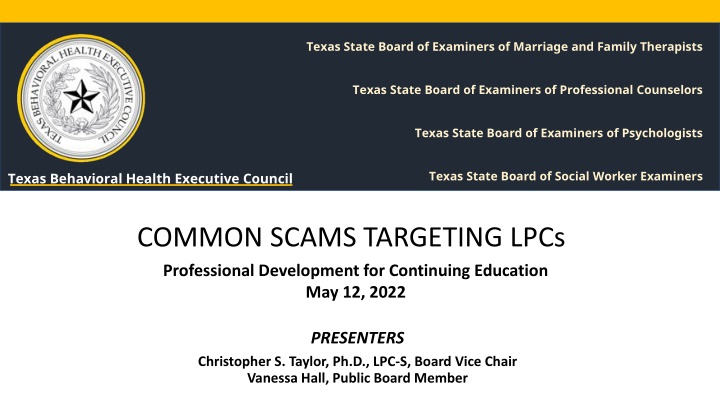

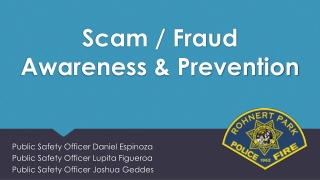
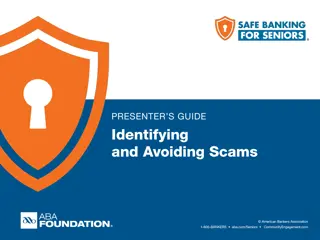

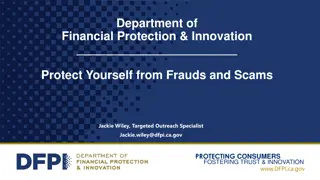
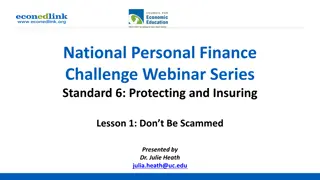
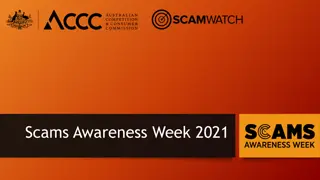
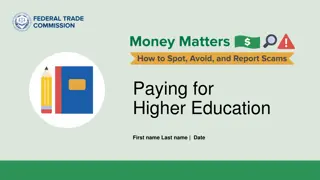
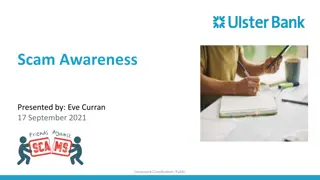

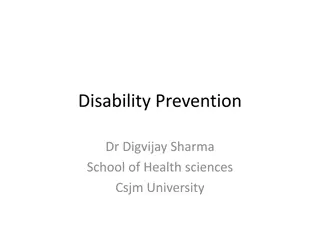
![101 Reviews How to Recover Lost Bitcoin [Scammed/Stolen Funds]](/thumb/153354/101-reviews-how-to-recover-lost-bitcoin-scammed-stolen-funds.jpg)

